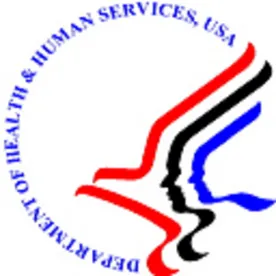A new addition to the RI Quarterly Newsletter, the Enforcement Corner is our effort to aggregate information regarding recent reimbursement-related enforcement activity, including significant overpayment matters, settlements, government audits and trends, or other case law involving reimbursement and billing compliance matters.
-
Telehealth Audits. The expansion of telehealth during the COVID-19 public health emergency has been a key to ensuring access to care for Medicare beneficiaries. But now that the dust is settling, the HHS Office of the Inspector General (OIG) has made clear that it intends to conduct audits of Medicare Part B telehealth claims in two phases: (i) auditing whether services commonly furnished via telehealth (E/M, psychotherapy, opioid use disorder) met Medicare requirements; and (ii) auditing whether telehealth services met distant site and originating site requirements and whether virtual check-ins, e-visits, and remote patient monitoring were furnished in a manner consistent with Medicare rules. These audits come on the heels of a letter from Principal Deputy Inspector General Christi Grimm (found here), which highlighted telehealth as a priority for audits and reinforced that its findings will be used to determine which telehealth flexibilities should remain permanent.
-
Civil Monetary Penalty (CMP) Liability for Misidentified Rendering Provider. An anesthesiology group recently agreed to pay approximately $550,000 for submitting claims to Medicare that listed an incorrect rendering provider, triggering liability under the CMP law. The group self-disclosed to the HHS OIG, so the circumstances of the error and how it implicated payment from the Medicare program are not publicly available. This is notable, nonetheless, as administrative claim errors are almost inevitable, and which ones rise to the level of a required self-disclosure (to OIG or to another government agency) is a very fact-specific endeavor.
-
Price Transparency Enforcement. After a number of recent high-profile publications highlighted potential non-compliance with the price transparency rule, CMS has issued its first set of warning letters to hospitals. The rule went into effect January 1 and, since that time, the Wall Street Journal, Health Affairs, and the Kaiser Family Foundation have published findings suggesting the prices—especially payer-specific negotiated rates—are not easily searchable or simply not available on many hospital websites. In response, in a letter dated April 13, 2021, Congress urged HHS Secretary Xavier Becerra to conduct routine audits and revisit its enforcement tools (including civil monetary penalties) to ensure compliance going forward. With the attention of Congress and the press, it appears CMS is taking steps in that direction, and providers should expect this as an area of focus for audits in the near-term.
-
Improper Billing for Lab Services & Services Rendered at a Provider-Based Facility Leads to $22 Million Settlement. The University of Miami (UM) entered into a $22 million settlement with the Department of Justice to resolve False Claims Act allegations related to laboratory services and compliance with provider-based rules at certain outpatient facilities. Stemming from three separate qui tam lawsuits, the government alleged that UM: (i) failed to provide Medicare beneficiaries with proper notice of co-insurance liability for hospital services, which is required by 42 C.F.R. § 413.65(g)(7); (ii) billed for medically unnecessary laboratory services as part of a pre-set protocol of tests run for each kidney transplant patient; and (iii) caused a related party (Jackson Memorial Hospital) to submit inflated claims for payment for pre-transplant laboratory testing under the cost reporting rules. Concurrently, UM entered into a five-year Corporate Integrity Agreement with the HHS-OIG. While provider-based compliance is top of mind for most providers, this settlement also highlights that internal protocols and intracompany arrangements can also be subject to scrutiny.




 />i
/>i
